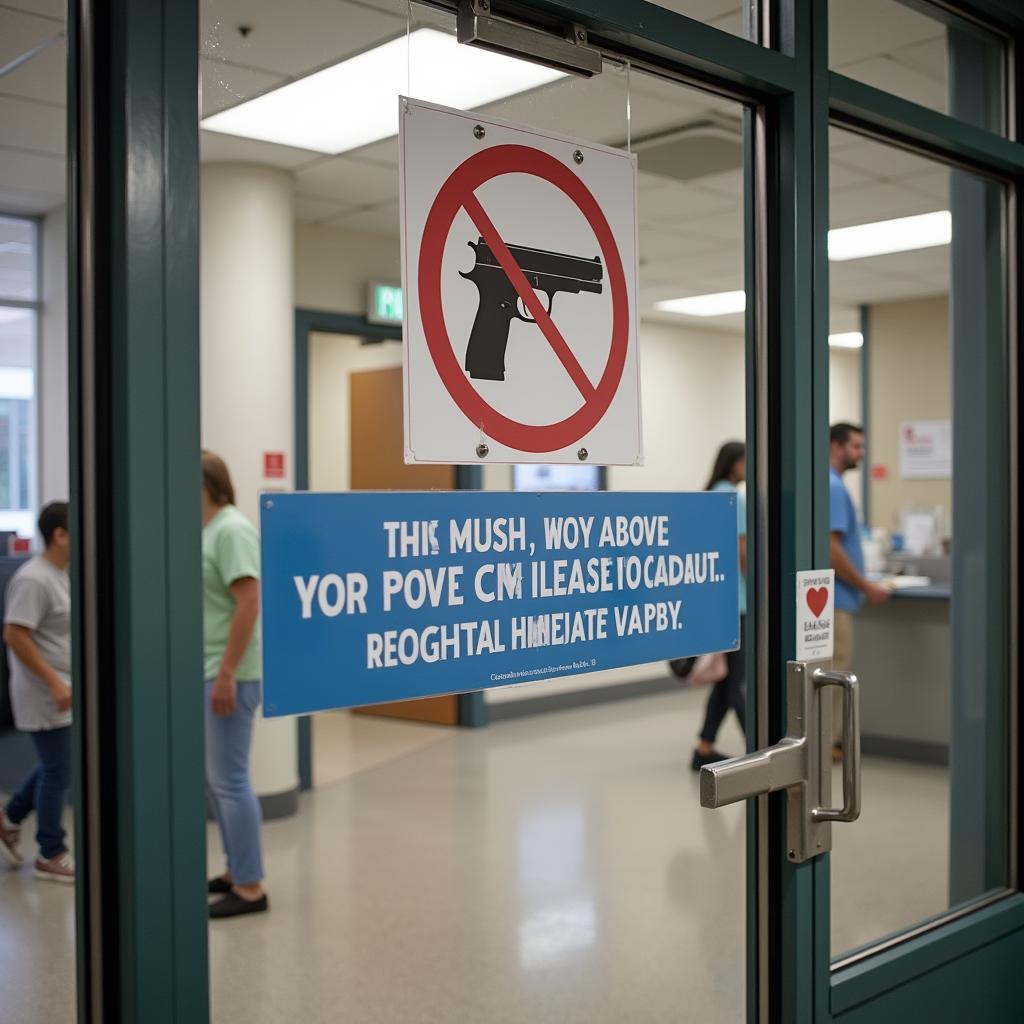When you seek medical care, peace of mind and a sense of security are paramount. While hospitals strive to create a healing environment, questions about safety and security, particularly concerning concealed carry, often arise. This article delves into the complexities of concealed carry laws within hospital settings, providing clarity for both permit holders and those seeking to understand these regulations.
The Intersection of Healthcare and Concealed Carry
The inherent sensitivity surrounding healthcare environments necessitates a careful balance between Second Amendment rights and the safety of patients, staff, and visitors. It’s important to remember that hospitals are considered “sensitive areas” under the law, often with stricter regulations regarding firearms.
 Hospital Signage Indicating Concealed Carry Restrictions
Hospital Signage Indicating Concealed Carry Restrictions
State Laws and Hospital Policies: A Complex Landscape
Navigating concealed carry laws in hospitals can be complex, as regulations vary significantly from state to state. Some states have explicit laws prohibiting firearms in healthcare facilities, while others allow hospitals to set their own policies.
- States with Strict Restrictions: California, for example, maintains strict gun control laws, generally prohibiting concealed carry in hospitals.
- States with Hospital-Specific Policies: In Texas, hospitals can prohibit concealed carry if they post proper signage and meet specific requirements outlined in state law.
- States with Open Carry Laws: States like Arizona, which allow open carry without a permit, may still have restrictions on carrying firearms in hospitals.
Understanding Hospital Rationale for Restrictions
Hospitals implement concealed carry restrictions for a multitude of reasons, primarily focused on fostering a safe and secure environment for patients, visitors, and staff.
- Vulnerable Populations: Hospitals care for individuals in vulnerable states, including the elderly, children, and those recovering from illness or surgery. The presence of firearms could potentially escalate situations and pose risks to these individuals.
- Emergency Situations: In high-stress situations, such as medical emergencies, the presence of firearms could hinder medical professionals from providing critical care or responding effectively.
- Workplace Safety: Hospitals are workplaces for thousands of healthcare professionals. Restricting firearms contributes to a safer work environment and reduces the risk of workplace violence.
Concealed Carry Permit Holders: What You Need to Know
If you possess a concealed carry permit and are visiting a hospital, it’s crucial to be aware of the facility’s policies.
- Check for Signage: Hospitals are required to display clear and prominent signage at entrances and within the building indicating their concealed carry policy.
- Inquire with Security: If you have any questions or concerns, don’t hesitate to contact hospital security or administration for clarification.
- Respect Hospital Policies: Adhering to hospital policies is essential, even if they differ from your personal beliefs.
Prioritizing Safety and Understanding
Ultimately, the conversation surrounding concealed carry in hospitals centers around safety and security. By understanding the rationale behind hospital policies and being aware of state laws, we can work together to ensure that healthcare environments remain safe havens for healing and well-being.
Remember: This information is for general knowledge purposes only and should not be construed as legal advice. Always consult with legal professionals or relevant authorities for specific guidance on concealed carry laws and regulations in your area.